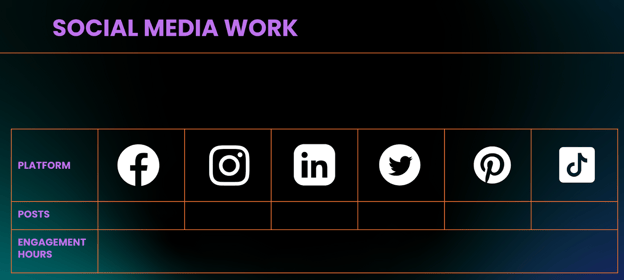Maximize Marketing Effectiveness: How to Acquire and Retain Customers
The quest for effectiveness is paramount in the ever-evolving marketing and advertising landscape. With consumers inundated with countless messages...
%20(1).png)
Demonstrating ROI is Business 101. Doing so in the realm of social media isn’t always easy. As more companies expand their digital footprint, understanding social media metrics is incredibly important, and if those companies are relying on you to drive their social strategy, you have to be able to measure your results, and demonstrate your value.
Attribution and ad spend are typically at the top of the list, but it several factors go into the success or failure of a social media campaign.
The better equipped you are at being able to capture the hard numbers and make it easily understandable for someone that might not know the first thing about TikTok can directly effect your pay and longevity with a customer.
Consider these three tips as you get started.
When you start working with a new customer it can be easy to want to dive in head first and begin producing content. Before that can happen, it is critical that you establish key performance indicators – or KPIs. These benchmarks will help you in the future as you report back on the success or failure of a social media campaign.
Keep in mind that the customer may turn to you for guidance on which KPIs are important for each platform, especially if they are just starting to grow their social media presence.
Companies are leveraging social media in new ways each and every day. Platforms like Facebook and Twitter might be Old Faithful, but newer platforms can reach new audiences and companies are taking full advantage of that fact.
For freelancers, this is a double-edged sword. One one hand, it ensures job security. On the other, it complicates tracking.
Multiple platforms that all provide different empirical data can be difficult to aggregate into a clear picture for the customer. Luckily plenty of tools exist that not only help you post across multiple social media platforms, but aggregate data.
As your client list grows, these one-stop-shops make the process easier, saving you time each month.
You might be swimming in the Metaverse, but it doesn’t mean that your clients are day in and day out. Social media marketers are infamous for using social jargon that sounds like a passing conversation in a Star Wars cantina scene.
Your customers want hard facts, they don’t need to know each and every metric, only those that are important to them. Make your reporting digestible. Show progress, or regression on key metrics and show how those metrics have changed over time.
Graphs and charts are a great way to get you point across without them having to wade through an Excel spreadsheet that has a dozen tabs and hundreds of lines of statistics.

When it comes to reporting, keep it simple.
Companies don’t hire social media marketers for statistics, they hire them to generate results and provide insights. You have a wealth of knowledge, and your customers expect you to share that information with them to make the overall product better.
As you collect your data, make a point to highlight your thoughts and suggest actionable items that can be adjusted to impact performance and generate greater ROI.
They hired you for a reason, this is your time to shine.

The quest for effectiveness is paramount in the ever-evolving marketing and advertising landscape. With consumers inundated with countless messages...

Here's the deal: social media platforms, especially the big dogs like Twitter and Meta, are feeling the heat to bring in the dough. The ad market is...
%20(1)-2.png)
In the business world, time IS money. It might sound cliche but it is a hard truth that business owners face when it comes to devoting resources to...